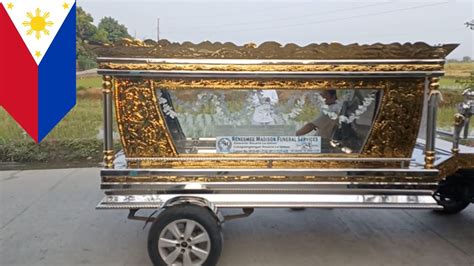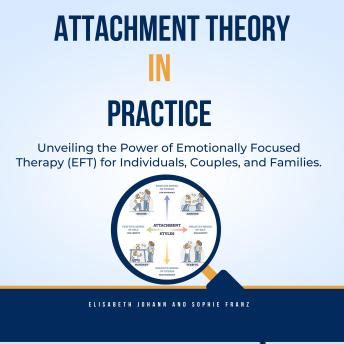Embracing the inevitability of mortality is an integral part of the human experience. As we journey through life, we encounter the loss of loved ones, and the rituals that accompany these farewells have existed for centuries. These rituals, known as funerals, encapsulate a deep understanding of the profound impact that death has on individuals and communities, allowing us to collectively grieve, remember, and honor the lives that have passed.
Funerals transcend cultural and religious boundaries, serving as a powerful reflection of our shared humanity. They provide a sacred space where mourners can come together to celebrate the beauty of life and find solace in each other's company. Such ceremonies offer a poignant opportunity to both acknowledge the finality of death and celebrate the everlasting legacy left behind. Funeral rites foster a sense of closure and help survivors navigate their grief, enabling them to gradually come to terms with their loss.
Each aspect of a funeral ceremony serves a distinct purpose, woven together to create a tapestry of remembrance and healing. From elegantly adorned caskets and solemn processions to heartfelt eulogies and somber hymns, every moment is carefully curated to resonate with the emotions of those present. These rituals provide a tangible way to express and process the complex emotions that accompany grief, allowing mourners to find strength and solace as they bid farewell to their departed loved ones.
Exploring the Importance of Funeral Customs

Delving into the significance of funeral traditions allows us to gain a deeper understanding of the rich cultural and personal aspects embedded within these rites of passage. By examining the customs associated with honoring and remembering the departed, we can unravel the layers of meaning and symbolism that give shape to these solemn ceremonies.
1. Preserving Ancestral Connections: Funeral traditions serve as a bridge that connects us to our ancestors and roots. Through time-honored rituals and practices, we pay homage to those who came before us, acknowledging their impact on our lives and ensuring their memory endures.
2. Providing Closure and Healing: Funeral customs play a crucial role in helping individuals cope with the loss of a loved one. The rituals and ceremonies create a space for mourning, allowing the bereaved to express their grief, find solace in the support of others, and ultimately begin the healing process.
3. Symbolizing Transitions: Funerals mark the transition from life to death, serving as a symbolic passage between the physical and spiritual realms. Through various customs such as the lighting of candles, the laying of flowers, or the recitation of prayers, the rituals embody the spiritual significance of this transition.
4. Embracing Cultural Identity: Funeral traditions preserve and celebrate cultural diversity, reflecting the unique customs and beliefs of different communities. These rituals provide an opportunity to honor cultural heritage, reinforce collective identity, and strengthen social bonds within a community.
5. Easing the Fear of Death: Funeral traditions help individuals confront and come to terms with their own mortality. By participating in the rituals and witnessing the somber beauty of a funeral, we gain a sense of acceptance and understanding, offering a measure of comfort in the face of our own inevitable journey.
6. Transmitting Values and Lessons: Through funeral traditions, important values, and lessons are imparted across generations. The customs and rituals serve as a poignant reminder of the fragility of life, prompting reflection on the importance of cherishing loved ones and living with purpose.
- The preservation of ancestral connections
- Providing closure and healing for the bereaved
- Symbolizing the transition from life to death
- Embracing cultural identity and diversity
- Easing the fear of death
- Transmitting values and lessons across generations
Understanding the significance of funeral traditions allows us to appreciate the multifaceted nature of these customs, their impact on individuals and communities, and the timeless wisdom they hold. By embracing and honoring these traditions, we can find solace, preserve our heritage, and navigate the profound emotions that accompany the loss of a loved one.
Exploring the Rich Cultural and Historical Roots
In this section of the article, we delve into the intricate tapestry of customs and traditions that have woven together to form the diverse landscape of funeral practices across different cultures and throughout history. We will examine the rituals, beliefs, and symbolism attached to funerals, shedding light on their significance and the values they represent.
Throughout the ages, diverse civilizations and communities have developed unique ways to honor and commemorate the passing of loved ones. These practices reflect the core values and beliefs of each culture, serving as a powerful expression of their collective identity and worldview. From ancient rites performed by indigenous tribes to elaborate ceremonies in imperial societies, funeral customs provide a window into the cultural heritage of humanity.
Within this exploration, we will uncover how different societies perceive and interpret death, reflecting on the various meanings assigned to it. Funeral rituals often encapsulate profound emotions such as grief, love, and reverence, serving as a means for individuals and communities to process loss and find solace in the face of mortality.
Moreover, delving into the historical roots of funerals allows us to trace the evolution of these practices over time. As societies progress and adapt, so too do their funeral customs. From traditional burials to cremations and eco-friendly alternatives, the transformation of funeral practices reflects both our changing relationship with death and the ever-shifting dynamics of society.
By exploring the rich cultural and historical roots of funerals, we gain a deeper understanding of the diverse ways in which communities have sought to navigate the profound emotions and existential questions that surround death. It is through this exploration that we can appreciate the rich tapestry of human experiences and recognize the universal need for rituals that honor and celebrate both life and the transcendence of mortality.
Unveiling the Emotionally Therapeutic Potential of Funerals

Exploring the profound impact of funeral ceremonies on emotional healing and resilience reveals a dimension beyond comprehension; a conduit for solace, solarity, and harmonious reconciliation.
1. Releasing Emotional Constructs: Funerals offer a sacred space that facilitates the release of pent-up emotions, providing individuals with an outlet to express grief, sorrow, and longing without judgment or inhibition. By immersing themselves in the ceremony, mourners embark on a transformative journey that allows them to navigate their emotions and initiate the healing process.
2. Fostering Connection and Collective Support: Funerals serve as a gathering ground, uniting family, friends, and communities in a shared experience of loss. This communal support system offers solace, a sense of belonging, and the opportunity for mourners to reflect, share memories, and find comfort through the empathetic presence of others.
3. Rediscovering Meaning and Purpose: Through the commemorative essence of funerals, individuals can discover newfound meaning and purpose in life. The ceremony serves as a poignant reminder of the brevity of existence, prompting profound introspection and inspiring individuals to reassess their priorities, relationships, and aspirations.
4. Transforming Grief into Growth: Funerals assist in transforming the sorrow of loss into a catalyst for personal growth and resilience. By collectively honoring the life of the deceased, mourners are encouraged to embark on a journey of self-reflection, self-compassion, and personal transformation, emerging from the experience with a renewed sense of purpose and inner strength.
5. Establishing Rituals for Closure: Funeral rituals provide a sense of closure and facilitate the gradual acceptance of death. By engaging in symbolic acts such as eulogies, rituals, and prayers, mourners find solace in the structure and familiarity of the ceremony, allowing them to navigate the complexities of loss and ultimately find a path towards emotional healing and peace.
- Unleashing buried emotions
- Collective support
- Reimagining life's purpose
- Growing from grief
- Closure through rituals
Rituals and Ceremonies: Assisting in Coping with Loss
The human experience is marked by numerous significant events, including the inevitable and often painful experience of loss. When facing the death of a loved one, individuals are often overwhelmed by a myriad of emotions, such as sadness, grief, and a profound sense of emptiness. In these challenging times, rituals and ceremonies play a crucial role in helping individuals cope with the loss and navigate the complex journey of grief.
Providing Structure and Comfort
Rituals and ceremonies provide a structured framework within which individuals can channel their emotions and begin to process their grief. These cultural practices and traditions create a space for individuals to express their sorrow, commemorate the life of the deceased, and find solace among their community of support. By participating in specific activities, such as funerals, memorial services, or religious ceremonies, individuals can find comfort in shared sorrow and the collective memories of the deceased.
Offering a Sense of Closure
Participating in rituals and ceremonies can offer individuals a sense of closure in the face of loss. These symbolic acts allow individuals to say their final goodbyes, honor the life of the departed, and acknowledge the finality of death. Through eulogies, prayers, or symbolic gestures, individuals can mentally and emotionally prepare themselves for the reality of their loved one's absence, granting them a sense of closure and helping them begin the healing process.
Fostering Collective Support
Rituals and ceremonies also foster collective support, providing individuals with a network of understanding and empathetic individuals who can share the burden of grief. These events create an opportunity for family, friends, and community members to come together, offering their condolences, providing emotional support, and lending a helping hand. Such collective support not only helps to alleviate feelings of isolation but also reinforces the importance of the grieving process and validates the emotions experienced by those mourning.
Preserving Memories and Legacy
Furthermore, rituals and ceremonies play a vital role in preserving the memories and legacy of the deceased. Through storytelling, shared anecdotes, and the exchange of cherished memories, these events allow individuals to remember and celebrate the life of the person they have lost. By actively engaging in these practices, individuals ensure that the essence of their loved one lives on, providing a source of comfort and connection as they navigate their grief.
In summary, rituals and ceremonies are integral components of the human experience, serving as invaluable tools that assist individuals in coping with loss. By providing structure, closure, collective support, and the means to preserve memories, these cultural practices and traditions facilitate the healing process and help individuals find solace in the face of grief.
FAQ
What is the purpose of funerals?
The purpose of funerals is to provide a way for family, friends, and loved ones to come together and pay their respects to the deceased. It is a time for mourning, remembering, and honoring the life of the person who has passed away.
Why are funerals important?
Funerals are important because they help individuals and communities cope with the loss of a loved one. They provide a structured and ceremonial way to express grief, share memories, and find support from others who are also experiencing the loss.
Is it necessary to have a funeral?
Having a funeral is not mandatory, but it is a common practice in many cultures and religions. Funerals serve as a way to say goodbye, provide closure, and begin the healing process. However, the decision to have a funeral ultimately depends on the wishes of the deceased and their family.
What can be gained from attending a funeral?
Attending a funeral can provide emotional support to the grieving family and friends. It allows individuals to express condolences, offer comfort, share memories, and show respect for the deceased. Additionally, funerals can offer an opportunity for personal reflection on life and mortality.




